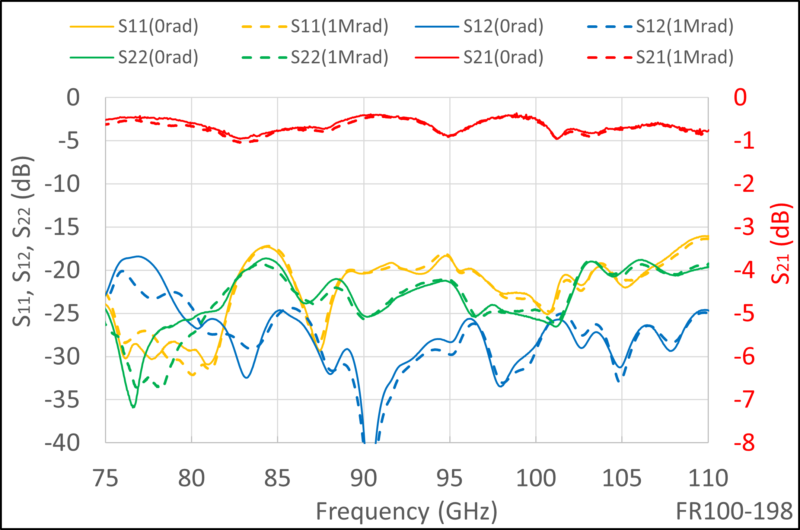Radiation Testing of Micro Harmonics Isolators
Space exploration has always pushed the boundaries of technology, requiring instruments that can withstand the harsh conditions beyond Earth’s atmosphere. One of the critical factors that must be considered when designing space-based instruments, such as isolators, is their ability to endure the effects of radiation, particularly the Total Ionizing Dose (TID).
What is Total Ionizing Dose (TID)?
TID is a measure of radiation absorbed by materials over time. In space, electronic components are bombarded by a stream of energetic particles such as protons and electrons, which can ionize atoms within the materials. This ionization process can lead to the accumulation of charge within the device, potentially causing performance degradation or failure. TID is expressed in units of rads(Si) for silicon or grays (Gy) in the International System of Units.
Why is TID Important for Space-Based Instruments?
The importance of TID for space-based instruments cannot be overstated. Space-based instruments are critical for scientific research, communication, navigation, and Earth observation. The reliability and longevity of these instruments depend on their ability to function correctly in the presence of space radiation. Long-term exposure to radiation can induce failure modes in spacecraft systems, affecting their reliability. Therefore, understanding and mitigating the effects of TID is essential for risk assessment and management in space projects.
How is TID Managed?
To manage TID effects, space agencies like NASA perform rigorous testing on candidate spacecraft electronics. These tests help establish the sensitivity of electronics to TID and determine their suitability for space utilization. Ground-based TID testing follows specific standards, such as the MIL-STD-883 1019.8 test method, to simulate space radiation conditions. Mission duration, location, and shielding are used to determine the amount of dose a system will get. Some missions may require testing levels of a minimum of 25 krad(Si), while multi-year missions may require higher levels of 100 krad(Si). Rad-hard parts are typically qualified to 100 krad(Si).
Radiation Testing of Micro Harmonics (MHC) Isolators
So how well do Micro Harmonics isolators hold up under exposure to radiation? In 2022, scientists at NASA’s Jet Propulsion Lab (JPL) tested two of our WR-10 Faraday rotation isolators, serial numbers FR100-195 and FR100-198.
Initially, both units were subjected to 46.17 rad(Si)/s for 36.1 minutes for a TID of 100krad(Si). Serial number FR100-198 was then subjected to 46.17 rad(Si)/s for an additional 324.89 minutes for a TID of 1Mrad(Si). Before and after test data for FR100-198 are shown in the graph. The small differences in the data are likely attributable to variations in the test conditions such as disparities in tightening flange screws. Neither of the tested isolators (FR100-195 and FR100-198) showed any change in performance caused by the radiation exposure.
Radiation testing of Micro Harmonics isolators
Summary of TID Testing Results
TID is a pivotal aspect of space system design and operation. By evaluating the TID sensitivity of spacecraft electronics, engineers can ensure that space missions are equipped with instruments capable of enduring the ionizing radiation environment of space, thereby safeguarding the mission’s success and the valuable data it aims to collect. Faraday rotation isolators produced by Micro Harmonics were radiation tested by NASA JPL at a rate of 46.17 rad(Si)/s. One unit (FR100-195) received a TID of 100 krad(Si) while the other unit (FR100-198) received a TID of 1Mrad(Si). Neither unit exhibited a change in RF performance due to the exposure.
Micro Harmonics is a leading provider of advanced components designed to perform under the most challenging conditions. Our product line includes the isolators, circulators and attenuators. Our products are engineered to withstand extreme environments, making them ideal for space applications. Our isolators have been rigorously tested, demonstrating exceptional resilience and reliability under high radiation exposure. Explore our range of innovative solutions and elevate your space missions with Micro Harmonics’ cutting-edge technology. Contact us today to learn more!

